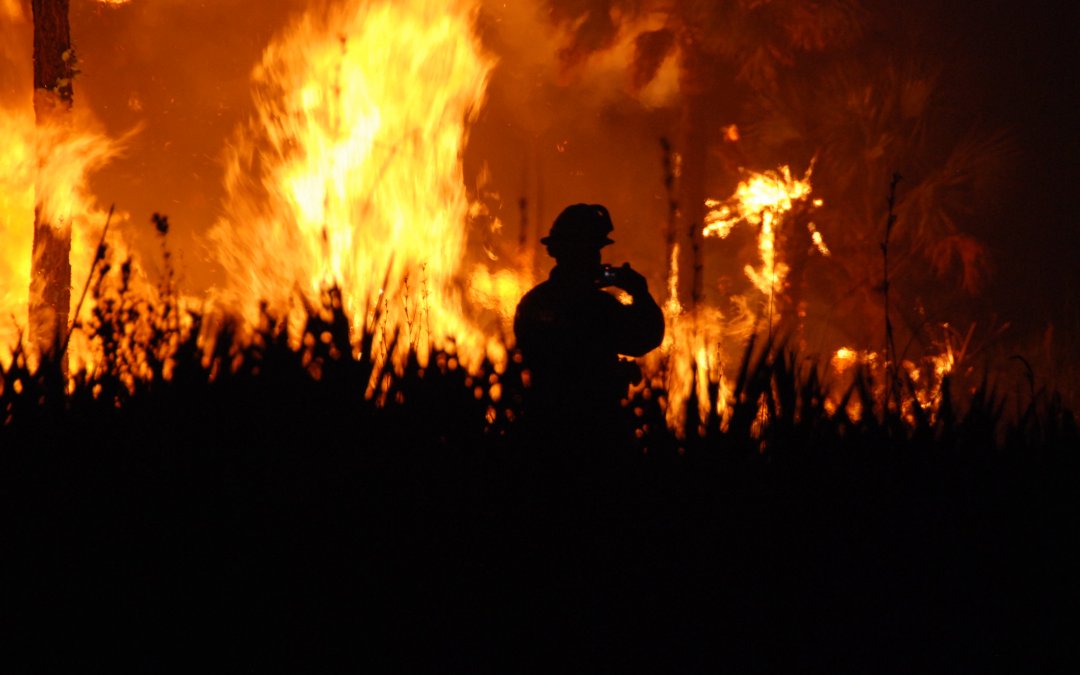WASHINGTON – With approximately 70,000 wildfires per year since 1983, federal agencies’ told senators on Thursday that emergency responses must be reformed to better aid impacted communities.
The threat of wildfires is immense. From injuries and deaths to property damage and toxic debris, the prospect of damage was not taken lightly by lawmakers and witnesses at Thursday’s Homeland Security and Governmental Affairs committee hearing.
“The current system focuses on suppression and mitigation in rural and federal lands and what we have seen is that wildfires are now affecting very populated areas over the last ten years,” Christopher P. Currie, the director of Homeland Security and Justice at the U.S. Government Accountability Office, said.
Wildfire relief is unique in that it is more costly compared to other natural disasters, Currie said. The soil becomes toxic, debris must be removed and while rebuilding after floods takes months, fire recovery can take years, he said.
This is more complicated when discussing debris removal in places like Maui, Hawaii, where its 2023 wildfire was referred to as one of the deadliest of the century.
Maui is not within the continental U.S. and has no landfills certified to house hazardous waste. Therefore, when the EPA helps with cleanup, it must ship the waste to licensed sites on the West Coast.
“The effects of these fires aren’t only physical danger and property damage. They also bring a host of health risks to our communities, even in locations hundreds of miles from the fire,” Sen. Gary Peters (D-Mich.) said.
The Canadian wildfires impacted several communities, he said. The fires knew no boundaries and turned skies across the East Coast and Europe an alarming hue.
“Wildfires can negate any improvement of air quality in a single incident,” Jamie Barnes, the director of Forestry, Fire and State Lands Department of Natural Resources State of Utah, said.
The Federal Emergency Management Agency (FEMA) is the federal agency responsible for mitigating the risks of wildfires and other natural crises. Peters said the goal of the hearing was to learn from witnesses what FEMA must do to more effectively address the problem.
One common thread throughout the remarks was the need to streamline agency efforts and encourage collaboration for more efficient solutions. Currie said that because different agencies sometimes have conflicting priorities, it is difficult to take cohesive action.
One example of this is how the U.S. Department of Agriculture Forest Service’s prescribed burns directly contribute to the air pollution that the Environmental Protection Agency seeks to limit.
While the burns are known to prevent wildfires by removing debris, they also produce smoke that is unhealthy for lung and heart function. Barnes said Utah has taken particularly beneficial steps to balance these two factors.
“If the clearing index is above 500, then we’re not allowed to do prescribed burning,” she said. But if there are long-term public safety benefits or they can see how prescribed burning will curb wildfire risk, then they are still able to take that action, given the clearing index is within range.
Once conflicting interests between agencies like the Forest Service and the EPA are taken into account and resolutions are reached, then they can work toward logistical solutions, like proactive planning.
Lori Moore-Merrell, an administrator of the U.S. Fire Administration of the U.S. Department of Homeland Security, said it is essential to educate the public about how to produce more fire-resistant communities. And when the fires inevitably arrive, there will also need to be precautions in place.
Sen. Mitt Romney (R-Utah) expressed concern that many of his constituents are angry and asking why the government is not doing a better job implementing preventative measures.
“FEMA and its federal partners and stakeholding partners are going to have to work together to figure out – before fires happen – what we’re going to do with survivors when they’re taking years to rebuild their homes,” Currie said.
The discussion focused mainly on community response and wildfire risk mitigation. According to Sen. Carper (D-Del.), though, the government must also address what is generating the fires in the first place.
“We have to address root causes and we all know what the root cause is: climate change,” Carper said.


